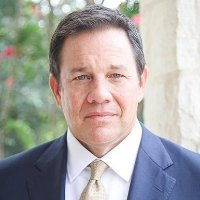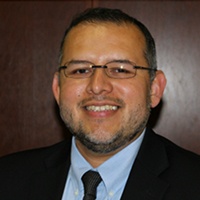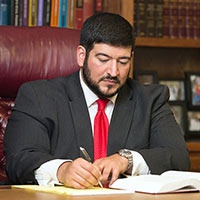 Yancey DUI-DWI Lawyers, Texas
Yancey DUI-DWI Lawyers, Texas
Sponsored Law Firm
-
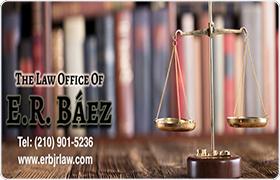 x
x

Click For More Info:
-
The Law Office of E.R. Báez
700 N. Saint Mary's Street Suite 1400 San Antonio, TX 78205» view mapCriminal Defense Law The Pastor Lawyer
Every client is special to us and every client will be treated with respect and dignity. No matter how difficult the case may be, Mr. Báez will treat you with the upmost dignity.
800-903-7181
Sponsored Lawyers
1-10 of 15 matches
Criminal, Juvenile Law, White Collar Crime, Federal Trial Practice, DUI-DWI
Mr. Lock began his career in civil litigation and then opened the doors of The Law Office of Sam H. Lock in 2000. For more than 10 years, he has been serving citizens throughout the state of Texas, in cities like San Antonio, Seguin, Pecos, Waco, Austin, Del Rio, El Paso and Midland. His commitment to his clients is unmatched and his passion for justice shows in his dedication to his work and his community. Professional Memberships/Associations: Board of Directors, Texas Criminal Defense Lawyers Association Board of Directors, San Antonio Criminal Defense Lawyers Association Member, American Inns of Court William Session Inn Sam H. Lock has tried every type of criminal case, from murder to the most minor misdemeanor. He brings his legal knowledge, litigation skills and a personal touch to his representation of those accused of crimes. Largely because of his hands-on approach, Sam has been recognized four times by Texas Monthly as a "Rising Star" in the legal profession (2006, 2008, 2009, 2010 and 2011). He has also been recognized three times in Scene in S.A. Monthly as one of San Antonio’s Best Lawyers. Sam frequently lectures at continuing legal education seminars, educating other attorneys on developments in the law, evidence, procedure and consequences of criminal convictions. He represents people from all walks of life and is firmly committed to fighting for his clients in courts throughout Texas.
(more)White Collar Crime, DUI-DWI, Criminal
I am Gary J. Barton, and I have dedicated my life to the pursuit of justice in the field of law. My journey has taken me from the small town of Bandera, Texas, to the halls of some of the most prestigious legal institutions in the nation. Allow me to share my story with you. Born and raised in the charming town of Bandera, Texas, I developed a passion for justice and a love for competition from a young age. My journey in law began after I played a pivotal role in winning the Texas State Championship in football. This early taste of victory and the pursuit of excellence set the stage for my future endeavors. I strive to provide a win for our firm and for my clients every single day. My academic pursuits led me to the University of Texas San Antonio, where I earned my undergraduate degree in political science. Fueling my thirst for knowledge, I then pursued a law degree at Texas Tech School of Law, where I honed my legal skills and embraced the values of justice, integrity, and diligence. But I didn’t stop there. I pursued a Master of Business Administration (MBA) at the Texas Tech Rawls School of Business, gaining a comprehensive understanding of the intersection between law and business – knowledge that would prove invaluable throughout my career. My legal career began as a felony prosecutor for the State of New Mexico, where I witnessed firsthand the profound impact of the justice system on people’s lives. This experience sharpened my dedication to upholding the principles of justice and due process. I continued my journey as a prosecutor, serving the people of Nueces County and Bexar County, Texas, with distinction. My specialization in Death Penalty cases and homicides was born out of a deep commitment to ensuring that justice was served, even in the most challenging and high-stakes situations. After trying dozens and dozens of cases, I felt it was time to give back to the community in a different way. Unfortunately, I saw firsthand what bad legal representation can do to a person and their life. I wanted to provide a service for clients that would never put them in a position to questions their legal representation. I ultimately made the switch to the defense in order to assist those that want the best representation and demand results. Over the years, I have tried over 100 cases to a jury, accumulating extensive trial experience that sets me apart in the legal profession. My unwavering dedication to my clients’ rights and freedom has earned me a reputation as one of the most sought-after criminal defense attorneys in the state of Texas. My commitment to winning, combined with my dedication to justice, has allowed me to secure favorable outcomes for my clients time and time again. I am proud to have made a difference in the lives of those I have represented. Today, I continue to advocate for justice as a criminal defense attorney. My mission is to provide unwavering support and fierce representation to those facing criminal charges. I believe in the principle that every individual is entitled to a fair defense, and I stand ready to uphold that right. Thank you for taking the time to learn about my journey. If you find yourself in need of a dedicated and experienced attorney to defend your rights, please do not hesitate to reach out. I am here to help you navigate the complexities of the legal system and fight for the justice you deserve.
(more)Criminal, Felony, Misdemeanor, DUI-DWI
The Aldape Law Firm P.L.L.C. is 100% devoted to criminal defense. This includes: State and Federal Criminal Cases - examples: DWI, Drug Possession, Human and Drug Trafficking etc.... Revocation Hearings - examples: motions to revoke probation, motions to revoke deferred adjudication Appeals - examples: appeals of both State and Federal Convictions Parole - examples: parole revocation hearings, parole packets seeking release from TDCJ DWI/Occupational Licenses - if certain conditions are met even a person who has a license suspension for refusing a breath test may be able to secure a license allowing them to travel to and from work Expunctions and Non Disclosures - examples: destruction of criminal records 24 Hour Access It is important to seek counsel immediately following an arrest, indictment or allegation. Contact us 24 hours a day to discuss your case.
(more)Criminal, Divorce & Family Law, DUI-DWI, Child Custody, Adoption
Marc LaHood is a Texas trial lawyer that has fought on behalf of his clients across Central and South Texas; from Pecos to Houston, from Paris to Laredo. There is no trick to winning trials and getting cases dismissed. He knows how to fight to win by putting the prosecutor on the defense instead of the offense. He will do the necessary work to prepare your case. Call now to learn how he can help you win your case.
(more)


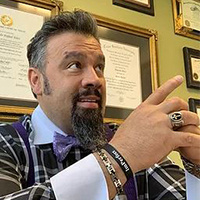 E.R. Báez San Antonio, TX
E.R. Báez San Antonio, TX Practice AreasExpertise
Practice AreasExpertise